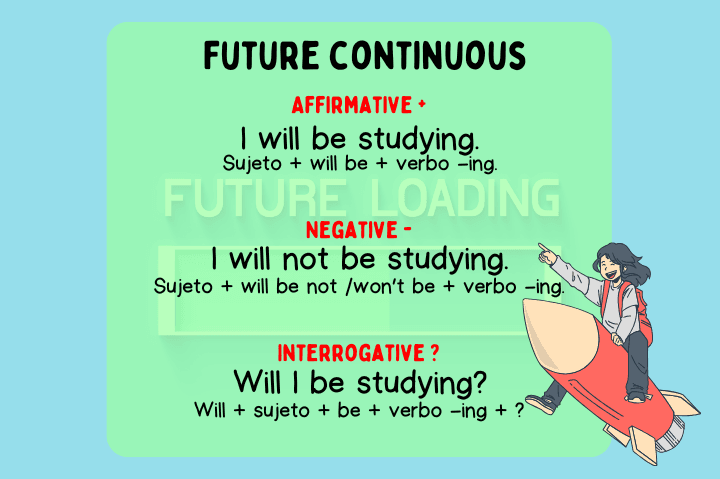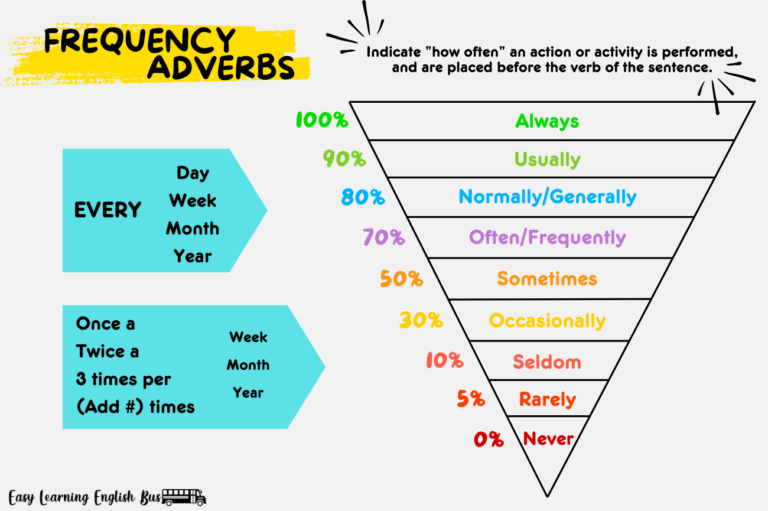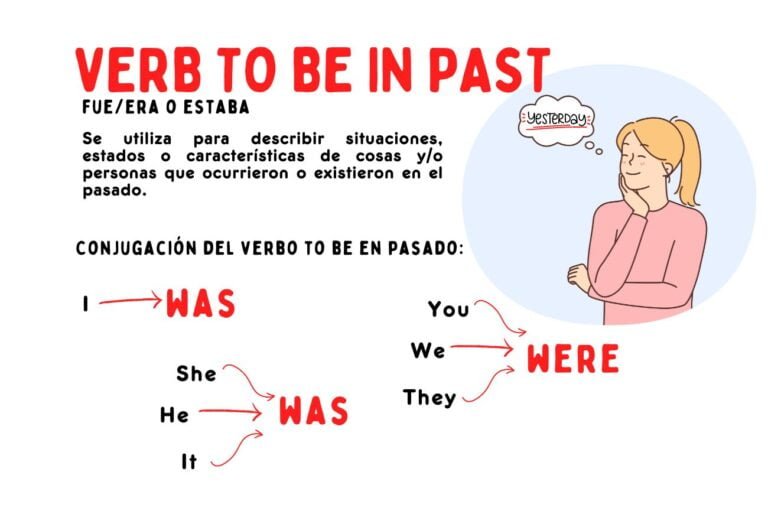
¿Qué es el Future Continuous?
El futuro continuo en inglés, o también conocido como Future Continuous tense, se usa para hablar de acciones que están ocurriendo en un momento específico en el futuro. La única diferencia es que cuando hablamos de Future Continuous estamos hablando de acciones que estarán en progreso en un momento específico del futuro.
Si quieres entender mejor cómo funciona el Future Continuous en inglés. Te recomiendo que eches un vistazo al presente continuo. En esencia, son acciones que ocurren en el momento.
- I am running.
- yo estoy corriendo.
- Es una acción que se está realizando en el momento.
- yo estoy corriendo.
El futuro continuo en inglés funciona de forma similar, la diferencia es que habla de acciones que se realizarán a futuro.
Ejemplo:
- I will be running at 6 tomorrow.
- Yo estaré corriendo a las 6 mañana.
Table of Contents
Future continuous tense rules: Estructura
Affirmative (+)
Sujeto + will be + verbo principal (-ing) + complemento
Ejemplos:
- I will be studying.
- Estaré estudiando.
- They will be playing.
- Ellos estarán jugando.
Recuerda:
Recuerda que un verbo es una acción y normalmente terminan en ar – er – ir, ejemplo: saltar, correr, reír. En español, la terminación “-ing” es el “-ando” y el “-endo“, y estas terminaciones se la agregamos a los verbos de acción.
• I am walking.
• Yo estoy corriendo.
| Sujeto | Futuro Continuo Will be + verb-ing |
| I | will be running |
| You | will be running |
| He | will be running |
| She | will be running |
| It | will be running |
| We | will be running |
| You (plural) | will be running |
| They | will be running |
Negative (-)
Sujeto + will be not /won’t be + verbo principal (-ing) + complemento
Para hacer una oración negativa debemos agregar “not” después de “will”. La forma contraída es “won’t be”.
Ejemplos:
- I will not (won’t) be sleeping.
- No estaré durmiendo.
- They will not (won’t) be studying.
- Ellos no estarán estudiando.
- She will not (won’t) be eating dinner.
- Ella no estará cenando.
- You will not (won’t) be paying attention.
- Tú no estarás prestando atención.
Interrogative (?)
Will + sujeto + be + verbo principal (con terminación -ing) + complemento + ?
Para hacer preguntas en cualquier tiempo verbal, recuerda que invertimos el orden del auxiliar, en este caso “Will” y el sujeto.
Ejemplos:
- Will she be reading a book?
- ¿Ella estará leyendo un libro?
- Will they be playing soccer?
- ¿Ellos estarán jugando al fútbol?
Respuestas Cortas
Para responder preguntas en Futuro Continuo en inglés, usamos respuestas cortas con “will” o “won’t” del mismo modo que en el futuro simple.
Ejemplos:
- Yes, I will be.
- No, I won’t be.
- Yes, they will be.
- No, they won’t be.
- Will he be writing a letter?
- Yes, He will be.
- ¿Él estará escribiendo una carta?
- Will they be playing a game?
- No, they won’t be.
- ¿Nosotros estaremos jugando un juego?
Use the future continuous: ¿Cómo se usa?
Este tiempo verbal se usa en varias situaciones:
Acciones en progreso en un momento específico del futuro:
Usamos el future continuous para describir acciones que estarán ocurriendo en un momento particular del futuro.
Ejemplos:
- At 8 PM, I will be watching TV.
- A las 8 PM, estaré viendo la televisión.
- They will be having dinner at 7 PM.
- Ellos estarán cenando a las 7 PM.
- He will be listening to music.
- Él estará escuchando música.
- We will be working on the project.
- Nosotros estaremos trabajando en el proyecto.
Acciones simultáneas en el futuro:
Usamos elfuture continuous para describir dos o más acciones que estarán ocurriendo al mismo tiempo en el futuro.
Ejemplos:
- While you are cooking, I will be cleaning.
- Mientras tú estés cocinando, yo estaré limpiando.
- They will be studying while we are working.
- Ellos estarán estudiando mientras nosotros estaremos trabajando.
Cortesía o suavizar un plan:
Usamos el future continuous para hablar de planes o intenciones de una manera más educada o suave.
Ejemplo:
- I will be meeting with my boss tomorrow.
- Estaré reuniéndome con mi jefe mañana.
Simple future and future continuous
Nota:
Debes tener en cuenta que el futuro continuo habla de acciones en progreso que estarán en progreso en un momento específico del futuro. Mientras que el futuro simple habla de acciones que ocurrirán en el futuro sin especificar si estarán en progreso en un momento particular.
Future continuous:
- I will be running at 6 tomorrow.
- Yo estaré corriendo a las 6 mañana.
Futuro simple:
- I will run tomorrow.
- Yo correré mañana.


